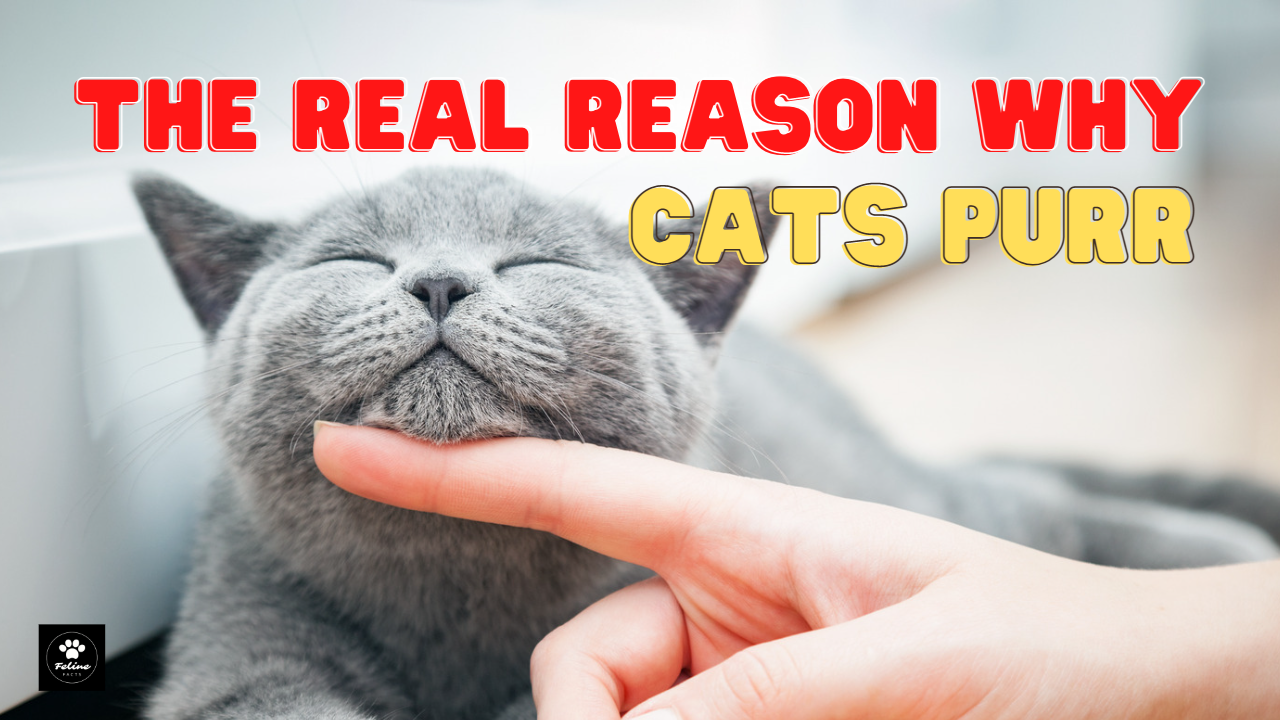Cats, you think you know them, but in fact, most of us don’t really understand them at all. Even though they live among us for millennia, for many people they are still a mystery. Let’s look at purring, for instance. Almost all cats do this, but it is a behavior most cat owners know very little about. So let’s start exploring this a bit. There are many different situations that can cause cats to purr, which has led to people coming up with multiple theories as to why they do it.
To help you better understand your feline friend, we’ve looked into just what makes a cat purr, and what different meanings these purrs can have.
5 Reasons Why Cats Purr
1. Cats purr because they are happy
The general belief is that cats purr when they are happy and pleased. This frequently occurs while we are petting them, or while they are sitting on our lap. Most cat experts agree on two main reasons why cats may be doing this. They pur to either make you feel better or because it makes them happy. According to the same experts, the most accurate translation of the purr is something along the lines of “Don’t go anywhere, please!”

2. Cats purr to communicate
Kittens purr while they feed or are near their mothers to let them know that they are doing fine. The purring helps them bond with their mother. Mother cats also purr back to their kittens as a form of a lullaby to help them feel comfortable and settle in.
But purring doesn’t always mean your cat is happy or taking care of their kittens. It all depends on the circumstance they’re in. When they are cuddled up with you and that purr comes along, you can expect they are in a happy place. But did you know that cats also purr when they are under a lot of stress?
That’s something you want to know about right? If a friend comes to your house and holds your feline, chances are you think she’s happy because she is purring. But it can be completely the opposite. Maybe she is very scared.
3. Cats purr to deal with anxiety
A fearful or anxious cat uses its purr to self-soothe. To calm itself down. Similar to how you may distract yourself with comforting music when you’re feeling stressed, the purring serves as a diversion and relaxes the cat.
4. Cats purr to heal
Purring also occurs when your cat is in stress, pain, in labor, injury, or scared. This can be a way for them to deal with their anxiety and discomfort.
Studies have revealed that a cat’s low frequency purr produces a series of vibrations inside its body that can relieve pain, heal injuries, and repair tendons. When a cat purrs, they can reach frequencies ranging between 25 and 150 hertz.
Many experts theorize that the 25 Hertz frequency of the cat’s purr might offer a kind of built-in physical therapy. There is even evidence that healthy cats can provide purr therapy to other sick cats just by lying next to each other.
What’s even more intriguing is that studies have shown that the vibrations caused by purring can stimulate bone growth in wild cats. Wild cats spend a lot of time lying around while waiting to hunt. Purring keeps the bones from weakening or becoming brittle.
5. Purring to send out Peaceful Intentions
Cats who don’t want to fight will frequently purr when they get close to another cat. They purr when someone approaches, whether they are friends or strangers, as a white flag. They merely wish to greet you. When an older, more frail cat approaches a younger one, you will usually hear this happen.
Purring heals humans
Studies have shown people may also benefit from the ideal hertz vibrations–ranging from 25 to 150 Hertz. When placed on purring-frequency vibrating plates for 10 to 20 minutes each day, sheep, rats, and turkeys all displayed a noticeable improvement in bone density. Other studies have also shown that cat purring is good for the additional health benefits for humans. Let’s see what these benefits are.
- Reduce stress and anxiety
- Relieve pain
- Lowers blood pressure
- Lowers the risk of a heart attack
- Promotes bone healing
- Promotes Wound Healing
- Reduces Swelling
- Healthier sleep
As you can see, purring can be very beneficial to your health.
How can you tell what the actual reason is your cat purrs
No one knows for sure what cats are trying to say when they purr. We need to look at the situation your cat is in first. Is your cat quietly sitting next to you while getting its daily dosage of human interaction? Then your cat is undoubtedly satisfied, and purring in support of your affectionate behavior. A cat on the exam table at the vet is much more likely to be afraid than happy. Your cat may be scared or in pain, but they could still purr.
Purring is second nature to your cat and usually you don’t have to be concerned about purring. However, if your cat is constantly purring nonstop, it’s time to look into the issue and try to fix it if you can.
Photocredits: Yerlin Matu
